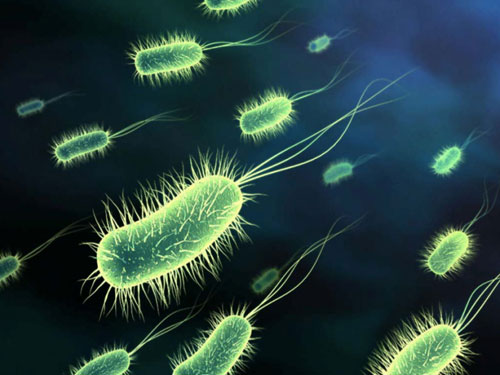If you’re a fan of a healthy lifestyle, you may have heard about the so-called “friendly bacteria”. The small organisms that help keep your normal balance of microorganisms in the gut. Experts call them probiotics (pro – for, bios – life).
“Friendly bacteria” in the intestines help limit the growth of undesirable microorganisms, including fungi and yeast growth. It also helps regulate the digestive and bowel movements, lower cholesterol and provide the necessary vitamin B. The benefits of probiotics include their ability to reduce inflammation and digestive hypersensitivity caused by food allergies, can prevent the degeneration of the liver caused by inadequate diets.
Probiotics helps to get rid of irritable bowel syndrome accompanied by bloating, pain and transit disorders (constipation or diarrhea), with no well-defined biological causes. A daily intake of probiotic intestinal bacteria would result in the elimination of harmful ones. Most of the probiotic dairy products that are found in stores, contain Lactobacillus and Bifidobacterium bacteria. These bacteria exist naturally in our intestines, which aids digestion.
Some researchers argue that probiotics inhibit the growth of colon cancer cells. Speeding the bowel process reduces cancer risk of colon, and limits the exposure to carcinogens in the gut.
Where we can find probiotics?
Probiotics are found in both dairy products (yogurt, kefir), in supplements, as well as in pills, and their consumption may be preventive or as a full treatment. There are certain foods that are prebiotics. They are the ones that stimulate the growth of probiotic bacteria. It’s the garlic, onion, tomatoes, leeks, chicory, asparagus, bananas and wheat.
Combining probiotics with prebiotics is very beneficial to the human body. By eating plenty of mushrooms you will be healthier, these are foods low in calories (about 28 calories per 100 grams) and high in vegetable protein, iron, zinc, fiber, amino acids, vitamins and minerals. Mushrooms contain probiotics, and are foods which keep the body balance and strength to fight diseases. However, it’s good to know that probiotic products are not safe for any individual, so consult a doctor before starting a diet with probiotics.
Probiotic food diet:
Monday – Wednesday – Friday:
– Breakfast: green tea, 250 gr. of dietary yogurt, a banana, 50 gr. of cheese / cottage cheese;
– Lunch: vegetable soup, 250 gr. of yogurt, fruits (strawberries, raspberries, blueberries, blackberries);
– Dinner: grilled mushrooms, half a glass of pomegranate juice, salad;
– Before going to bed – a glass of dietary milk / yogurt.
Tuesday – Thursday – Saturday:
– Breakfast: green tea, cereals, yogurt, red fruits;
– Lunch: vegetable soup, boiled spinach, lettuce, 50 gr. of cheese, a banana;
– Dinner: 150 gr. of grilled chicken, 250 gr. of dietary yogurt / soy yogurt;
– Before bed – a glass of dietary milk / yogurt.
Sunday:
– Fish, half a glass of red wine, soybeans, 50 gr. of dark chocolate, yogurt and kefir.


